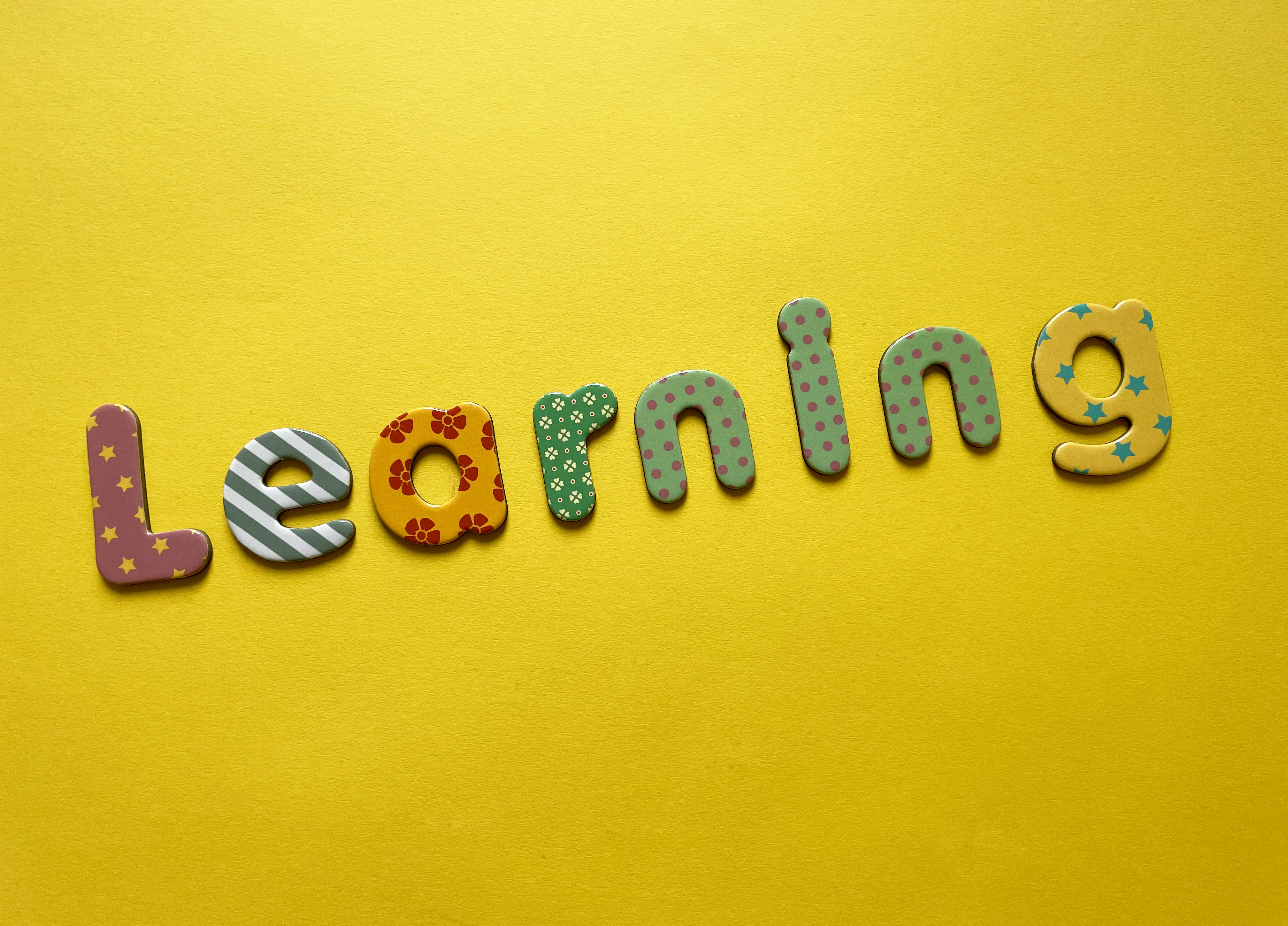Introduction to Lifelong Learning
Lifelong learning refers to the continuous, self-motivated pursuit of knowledge for personal or professional development. In an era marked by rapid technological advancements and an ever-evolving job market, the importance of lifelong learning has become increasingly significant. This approach to education is not only about acquiring formal qualifications but also emphasizes developing skills and knowledge throughout one’s life in various settings. In today’s fast-paced environment, traditional education alone may not suffice to meet the challenges that individuals face throughout their careers.
Unlike the conventional educational framework, which typically confines learning to a specific period or age, lifelong learning encourages individuals to embrace learning as a continuous process that does not end with formal schooling. It promotes adaptability, critical thinking, and problem-solving abilities, which are essential in navigating the complexities of the modern world. Lifelong learners are often more equipped to respond to changing circumstances, whether in their professional lives or personal pursuits, as they continually accumulate and apply new knowledge and skills.
The significance of lifelong learning extends beyond individual growth; it contributes to the development of a knowledgeable and skilled workforce. Organizations increasingly value employees who demonstrate a commitment to ongoing education, as this resilience and ability to learn new skills can enhance innovation and adaptability within the workplace. In addition, as industries evolve, lifelong learning helps professionals stay competitive and relevant in their fields, often leading to greater career satisfaction and opportunities.
Understanding the concept of lifelong learning lays the foundation for recognizing its role in achieving success. By prioritizing education beyond traditional settings, individuals can navigate their personal and professional lives with a sense of confidence and competence necessary for lifelong success.
The Evolving Landscape of Education
The education landscape has undergone significant transformation in recent years, primarily driven by technological advancements and the forces of globalization. Traditionally, education was characterized by a standard model where students engaged in classroom-based learning, often following a one-size-fits-all approach. However, the rapid advancement of technology has disrupted this rigid framework, facilitating the emergence of diverse educational formats that cater to an array of learning styles and preferences.
Online courses have become increasingly popular, allowing learners to access quality education from anywhere in the world. Platforms such as Coursera, edX, and Udacity provide a wealth of resources, including video lectures, interactive quizzes, and forums for peer interaction. This flexibility empowers learners of all ages to tailor their educational experiences to meet their unique needs, whether they are professionals seeking skill enhancement or individuals pursuing personal growth.
In addition to online courses, workshops and seminars have gained prominence as valuable educational tools. These programs often provide hands-on experience and the opportunity for networking, further enriching the learning process. Topics covered can range from the technical to the creative, thereby accommodating a multitude of interests and career paths. As a result, individuals can engage in self-directed learning, exploring subjects that resonate with their passions or professional aspirations.
The increase in availability of these alternative learning options underscores the importance of accessibility in education. No longer are learners confined by geographical limitations or rigid schedules; they can engage with content at their own pace, affording them the freedom to balance their commitments and aspirations effectively. This evolution is particularly beneficial for non-traditional students, who may be balancing work, family, and educational pursuits simultaneously.
As the landscape continues to change, it is crucial for educational institutions, educators, and learners to embrace these options, ensuring that the journey of education remains inclusive and adaptive for individuals from all walks of life.
The Personal Benefits of Continuous Learning
Continuous learning is integral to personal and professional development. Engaging in lifelong education offers numerous benefits, such as enhanced cognitive abilities. Adult learners often experience improved memory, sharper analytical skills, and increased creativity, all of which contribute to better decision-making processes in both professional and personal settings. The act of learning stimulates the brain, leading to neuroplasticity, which enhances mental agility throughout one’s life.
Moreover, continuous learning significantly boosts problem-solving skills. By exposing oneself to new ideas and perspectives, individuals not only add knowledge but also develop the ability to think critically and tackle challenges effectively. This adaptability is especially crucial in today’s fast-paced world where change is constant. Embracing lifelong education fosters resilience, enabling individuals to navigate through unforeseen obstacles with confidence and skill.
Job satisfaction is another vital benefit that arises from a commitment to continuous learning. Individuals who pursue ongoing educational opportunities often find themselves more engaged in their work. This engagement stems from the expanded skill set and knowledge acquired through learning, which can lead to new career opportunities and advancements. Additionally, the pursuit of knowledge can create a sense of accomplishment and fulfillment, further enhancing one’s motivation and enthusiasm for their profession.
Beyond academic or professional advantages, lifelong learning greatly contributes to personal growth and self-discovery. As individuals explore varied subjects and skills, they often uncover hidden talents or interests that they may not have realized existed. This journey of exploration leads to a more enriched life, fostering a deeper understanding of oneself and the world. Thus, continuous learning is not just an academic endeavor but a pathway to personal enrichment and a fulfilling, successful life.
The Impact of Learning on Career Success
In today’s rapidly evolving job market, the relationship between continuous learning and career success has become increasingly clear. Ongoing education provides individuals with the opportunity to acquire new skills and knowledge that can directly influence their professional trajectory. Those who engage in sustained learning often find themselves better equipped to meet the challenges posed by new technologies and methodologies in their respective industries.
Statistics demonstrate a compelling link between education and career advancement. According to research published by the Bureau of Labor Statistics, individuals with higher levels of education tend to earn significantly more over their lifetimes compared to those with only a high school diploma. Furthermore, a study conducted by the Georgetown University Center on Education and the Workforce found that job openings requiring advanced skills are growing at a faster rate than those for less skilled positions. This underscores the importance of continuous education as a vital component of career development.
Real-life examples further illustrate this point. Many professionals have leveraged additional certifications to secure promotions within their organizations. For instance, a project manager who pursues an advanced certification can demonstrate enhanced competency to employers, subsequently positioning themselves as a prime candidate for leadership roles. Similarly, employees who pursue learning opportunities—such as workshops, seminars, or online courses—often find they can negotiate for higher salaries or even switch to more fulfilling roles within their field.
Moreover, continuous learning contributes to improved job security. In an era where industries are subject to constant shifts in demand and technology, those who proactively seek knowledge and skill enhancement are more adept at adapting to changes. Employers increasingly value adaptability, making learning not just an option but a strategic imperative for career resilience. In conclusion, investing in continuous education can be a decisive factor in achieving long-term career success.
Building a Learning Mindset
In today’s rapidly changing world, embracing a learning mindset is vital for personal and professional success. A learning mindset is characterized by curiosity, resilience, and the willingness to continually seek knowledge. Cultivating this mindset enables individuals to adapt to challenges and seize new opportunities, fostering a lifelong journey of education and personal growth.
One effective strategy for building a learning mindset is to set achievable goals. When individuals establish clear, realistic objectives, they create a roadmap for their educational pursuits. These goals can range from short-term objectives, such as mastering a specific skill, to long-term aspirations like earning a degree or certification. Setting measurable goals not only helps in maintaining motivation but also allows for tracking progress over time.
Seeking out educational opportunities is another key component of developing a learning mindset. This can involve formal education, such as enrolling in classes or attending workshops, as well as informal avenues like online courses, podcasts, or reading relevant literature. By exploring a variety of learning formats, individuals can find what works best for them and stay engaged in the learning process.
Fostering a supportive community of learners further enhances the journey of lifelong learning. Surrounding oneself with like-minded individuals allows for shared knowledge, discussion, and feedback, all of which contribute to a deeper understanding of various subjects. Joining study groups, attending networking events, or participating in online forums can help create connections that inspire and motivate one another to embrace continuous education.
Despite the benefits, individuals may encounter obstacles that impede their learning journey. Common challenges include a lack of time, fear of failure, or self-doubt. Overcoming these barriers requires a proactive approach. Prioritizing learning in one’s schedule, viewing failures as critical learning experiences, and practicing self-compassion can significantly improve one’s ability to persist in their educational endeavors.
Harnessing Technology for Lifelong Learning
In today’s fast-paced world, technology profoundly influences the educational landscape, making lifelong learning more accessible and inclusive than ever before. The emergence of online learning platforms represents a significant shift in how individuals pursue education. Platforms such as Coursera, Udacity, and Khan Academy provide a plethora of courses covering various subjects, allowing learners to engage with materials at their own pace. This accessibility eliminates geographical barriers, enabling people worldwide to acquire new skills and knowledge irrespective of their location.
Moreover, the rise of educational podcasts has further democratized learning. With a focus on diverse topics, these audio programs allow listeners to absorb information conveniently during their daily routines. Whether commuting to work or exercising, individuals can engage with expert insights, thought-provoking discussions, and enriching content at their convenience. This flexibility accentuates the philosophy of lifelong learning, empowering people to integrate education seamlessly into their lifestyles.
Mobile applications also play a crucial role in enhancing the learning experience. With apps designed for language learning, skill development, and even personalized education, learners can tailor their educational journey according to their needs and preferences. Innovations such as gamification within these applications increase engagement and motivation, transforming the process of learning into an enjoyable and rewarding experience.
Staying updated with current technology trends is essential for personal and professional growth. As industries evolve due to technological advancements, continuous learning is necessary to remain competitive and relevant. Engaging with modern learning resources ensures individuals possess the knowledge and skills needed to navigate an increasingly complex world. In this context, harnessing technology proves to be a vital element in cultivating a lifelong learning mindset, allowing for growth and adaptability in various life stages.
Creating a Personal Learning Plan
Developing a Personal Learning Plan (PLP) is a crucial step toward achieving your educational objectives and enhancing your overall skill set. The first step in this process is to evaluate your current skills and knowledge. This self-assessment involves reflecting on your existing competencies, pinpointing areas of strength, and identifying gaps where further development is necessary. Clear understanding of your starting point will provide a solid foundation for your learning journey.
Once you’ve assessed your current skills, the next step is to set specific, measurable, achievable, relevant, and time-bound (SMART) learning objectives. These objectives should align with your personal and professional aspirations. For example, if your goal is to advance in your career, focus on skills that are in high demand in your industry. It is beneficial to write these objectives down, as this will not only reinforce your commitment to your plan but also serve as a reference point to track your progress.
In addition to setting objectives, it is essential to identify the resources that will aid you in fulfilling your learning goals. This could include online courses, webinars, and workshops, or reading materials such as books and articles that specifically relate to your areas of interest. Numerous platforms, such as Coursera, Udemy, and Khan Academy, provide a wealth of educational content suitable for a diverse range of subjects. Furthermore, engaging with communities, whether online or offline, can significantly enhance your learning experience as they offer opportunities for networking, mentorship, and collaboration.
In summary, creating a personalized learning plan requires thoughtful assessment of your existing skills, establishing clear objectives, and utilizing appropriate resources. By systematically following these steps, an individual can foster a lifelong learning mindset that will contribute significantly to their personal and professional success.
The Role of Mentorship in Learning
Mentorship plays a pivotal role in lifelong education, serving as a cornerstone for personal and professional development. A mentor, often more experienced in a particular field, provides invaluable guidance and insight, which can significantly enhance the learning experience. Through mentorship, individuals gain access to a wealth of knowledge and practical experiences that might otherwise remain inaccessible. This relationship fosters an environment where aspiring learners can thrive, cultivating the necessary skills to navigate their educational and career paths effectively.
A mentor can offer tailored advice based on their own journey, sharing lessons learned from successes and failures. This personal touch empowers learners to avoid common pitfalls and encourages them to embrace challenges with confidence. Furthermore, mentorship often leads to networking opportunities, as mentors can introduce their mentees to key connections within their industry. This expanded network can provide a diverse array of resources and support systems, ultimately enriching the learner’s educational journey.
Finding a suitable mentor involves identifying individuals whose expertise aligns with one’s personal goals. This can be done through professional networking platforms, educational institutions, or industry-specific events. When approaching potential mentors, it is essential to demonstrate genuine interest in their work and express a desire to learn from their experiences. Personalizing your request can significantly increase the likelihood of a positive response. Additionally, being an active participant in one’s learning journey is crucial; collaboration with mentors and peers fosters a dynamic exchange of knowledge that drives growth and development.
In conclusion, the relationship between mentorship and lifelong learning is mutually beneficial. Both mentor and mentee gain from this connection, enriching their understanding and appreciation of the learning process. Embracing mentorship can be a transformative experience, paving the way for continued growth and success in one’s educational endeavors.
Conclusion: Embracing the Lifelong Learning Journey
In reflecting on the value of education and the role of continuous learning in achieving lasting success, it becomes evident that these elements are not confined to traditional classroom settings. Instead, they embody an ongoing journey that adapts to the evolving landscape of personal and professional development. Lifelong learning is essential, as it equips individuals with the necessary skills and knowledge to navigate changes in the workplace and society. This adaptive mindset is crucial for sustaining relevance in an increasingly competitive and dynamic environment.
Throughout our exploration, we have highlighted the multifaceted benefits of lifelong education, ranging from enhanced cognitive abilities to increased opportunities for career advancement. The integration of learning into daily life fosters resilience and creativity, which are vital attributes in overcoming challenges and seizing new opportunities. By engaging in various forms of education—be it formal, informal, or self-directed—individuals can cultivate a rich tapestry of experiences that contribute to both personal satisfaction and professional efficacy.
Moreover, embracing the concept of lifelong learning encourages a mindset of curiosity and openness. This is paramount in a world characterized by rapid technological advancements and shifts in cultural paradigms. As individuals commit to their educational journeys, they not only enhance their comprehension of the world around them but also inspire those within their communities to pursue their own paths of discovery. Thus, we underscore the importance of taking that first step toward this enriching journey, as it can ultimately pave the way for success and fulfillment.
Ultimately, the journey of education and learning is a lifelong commitment that rewards those who dare to prioritize learning at every stage of life. Embracing this journey is not merely about acquiring knowledge; it is about transforming one’s approach to life, fostering growth, and unlocking both personal and professional potential. Let us welcome the continuous quest for knowledge with open arms and recognize it as the key to success.



